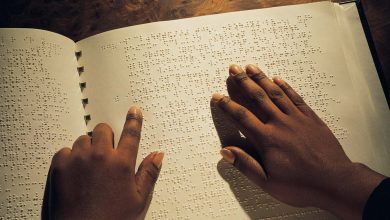India lifts ban on gay sex
India has decriminalised gay sex following a top court ruling on Thursday.
The court heard petitions challenging the constitutional validity of Section 377 – a colonial-era law under which same-sex relationship is an “unnatural offence” punishable by a 10-year jail term.
“Any discrimination on the basis of sexual orientation violates fundamental rights,” the Supreme Court said in Thursday’s ruling.

“The constitution is a living organic document … pragmatic interpretation has to be given to combat rigorous inequality and injustice. Social morality cannot be used to violate the fundamental rights of even a single individual. Constitutional morality cannot be martyred at the altar of social morality.”
Thursday’s judgement is a shot in the arm for India’s gay community.
Hundreds of LGBTQ campaigners, who had gathered outside the Supreme Court in New Delhi, broke into loud cheers as news of the ruling reached them.
Activists say the law banning homosexuality had been used to harass and target the community.
“This section 377 is a terrible colonial legacy,” Menaka Guruswamy, one of the lawyers representing the petitioners, had argued in court in July.
She had urged the judges to “emancipate a class of people who have not been given the promises of our Constitution”.
The ruling Bharatiya Janata Party (BJP), which has an overwhelming majority in parliament, has been silent on the issue of homosexuality so far. The government told the top court it would leave the decision to “the wisdom of the court”.
There are no official figures on the number of harassment cases as victims are scared to report crimes fearing section 377 will be used against them.
Activist Kavi’s Humsafar Trust,a charity that works with India’s LGBT community, included a crises data report in its petition to the top court.
It said less than 20 percent of those surveyed had publicly revealed their sexual identity while two out of every five homosexuals in the country have faced blackmail after the top court had recriminalised homosexuality in 2013.
Neighbouring China decriminalised homosexuality in 1997 and with this landmark ruling in India, a majority of Asians now will not face criminal charges for their sexual identities.
“LGBTI communities in Sri Lanka, Pakistan and Bangladesh are also working to repeal similar remnant of British colonisation in their own country and the ruling from India will feed into more dialogues, at least among LGBTI civil society across these countries,” she added.
Homosexual acts are still illegal in most of India’s neighbours, including Sri Lanka, Pakistan and Bangladesh.
The ruling comes as a major respite but conservative Indians might not change their perception of the gay community, say activists.
Violence against homosexuals and transgenders in India in recent years have ranged from physical beatings, sexual assault, blackmail, bullying and extortion. Perpetrators of the violence have been family members, the general public and the police, say rights campaigners.
An anti-discrimination law would further boost efforts to fight homophobia in the deeply conservative nation, according to activists.
Activists such as Kavi advocate a more pragmatic approach.
“You can’t break the fortress in one go. Open the door. If the door gets opened, you are inside. Be inside and fight it out,” he said.
Gay-rights activists in India have been posting congratulatory messages on Twitter and Facebook with the court on Thursday ruling gay sex was not a crime.
The ruling is expected to have wide-ranging implications in the months to come, including its effect on the transgender community.
Lawyers arguing in the top court in July for the ban to be scrapped also referred to the rich heritage of the region in cultural and religious depictions of homosexual relations.
Visitors to the ancient temples of Khajuraho in southern India, built in the 10th century, would find homosexual couples immortalised in its stone carvings.
Many Indian scriptures and ancient rulers, according to some historians, did not criminalise romantic or sexual relations between members of the same gender. Transgenders held high positions in courts of Mughal rulers in the 16th and 17th centuries.




